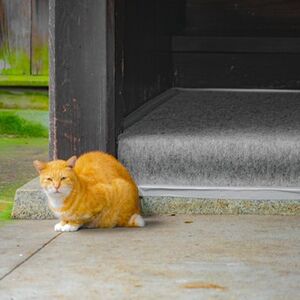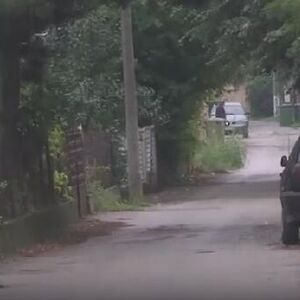‘ALL DOORS HAVE OPENED FOR ME HERE, I DON’T KNOW IF I’D SUCCEED ABROAD!’ The ACTOR on turning point in LIFE, new roles, FAMILY

When someone like actor Gordan Kičić chooses a profession with his heart and at a young age, great results are no surprise but rather a logical outcome. It is precisely this continuity in work that has brought him the status of one of the more active domestic actors, who puts in a lot of effort in directing and producing alongside acting.
As Kičić is slowly preparing season three of the TV series Mommy and Daddy Are Playing War, we can watch him in the new thriller The Restless, and he is counting the hours until tonight’s preview of the play Addresses to the Nation at Atelje 212. In his interview with Kurir, he reveals what goes on in the mind of an actor one day before the premiere.
Are you excited?

“Of course. I’m looking forward to standing in front of an audience again. So far we have rehearsed the play in an empty hall, so it won’t be till tonight, when we face the audience, that we’ll know what we’ve done. Incidentally, the whole show is a serious interaction with the audience.”
We can also watch you in the new thriller The Restless.
“In it, several stories are laced together, sort of like a twine, and it’s only around halfway through the series that it becomes clear what we’re watching. My character is searching for his brother, who has been kidnapped. Step by step, the viewers realize what he has gotten himself involved in, and the flashback sequences tell us what their life was like. Those who miss an episode will have to go back. The cast is big, and I’ve played for the most part alongside Ana Mandić, Strahinja Blažić, Anica Dobra, and Jelena Stupljanin.
Working again with Jelena, after many years?
“We are good friends, we like each other both privately and professionally. We were direct partners in the production of Bash at the Yugoslav Drama Theatre, and then we did the TV series The Foxes and had a great time together. She then left for the US, where I had the opportunity to visit her twice and see her on stage. She is a great actress, who had a wonderful career in New York. When she came back, we continued to play in The Night Watch at Atelje 212. As for The Restless, it was a joy and a pleasure to do.”

And it also meant driving fast, which you filmed without a stuntman?
“That stunt was performed with 10 stuntmen in other cars, and it was shot with two or three cameras. We were overtaking and chasing each other. It was exciting.”
When did you get your driver’s licence?
“When I was 18. I like driving, but not travelling for 10 hours. Short two-hour routes across Serbia are ideal.”

Speaking of reaching adulthood, are you still grateful to Professor Bajčetić for admitting you into his class, so you did not move to Russia or the US and live there?
“Absolutely. The late Professor Bajčetić left a great mark on my studies, and I had wonderful communication with him afterwards.”
As an artist, can you give your best in your country?
“I don’t know what would have happened if I’d left. The way things stand now, various doors have opened for me, allowing me to produce, direct, and create TV series. I don’t know if I’d have been able to do that abroad. I cannot complain and say that somewhere else is better. I’m grateful for what I have.”
You grew up with your father, a famous director, your mother, a lawyer, and your grandfather, a medical doctor. Did the success of your family motivate you to succeed too?

“All that mattered to me was to carve out my own career, which would be my own and no one else’s. When I felt that I had achieved that and then moved on to direct, I spoke to my father, who was a source of great support to me. Initially it was important to me not to be labelled as someone’s little kid. That’s now far behind us.”
Can you now give your daughters clear advice regarding what to search for in life?
“I tell them to look for what makes them feel fulfilled. Not happy, because different people may have different experiences of happiness. There are those who do nothing, but they’re happy, and those who work, and they’re happy too. What’s important is that your job fulfils you, that you see it as a vocation and a necessity for personal expression. I don’t put any special demands on my children. I just want then to be content.”
Do you have a recipe for saving one’s family?
“You need to be present, both mentally and physically, and know your priorities in life.”

Young people used to express their rebelliousness through music. That is gone now…
“It is gone. They are completely different from us. But the world is also entirely different, in terms of technologies, the amount of choice, the availability of everything. They can only get some guidance from us, and their options are fantastic. They can go abroad on scholarships, return, change jobs, retrain, change professions… That’s good, but what is most important is what they learn at home – from work habits to their points of view and cultural tastes, in film and music. The world is now very close, and we’re part of it. We do have our own troubles, that’s true, but life isn’t peachy elsewhere either.”
Where do we stand today in the fight for a little more culture?
“The cultural life is as it is, at the level of this region. The aggravating factor is the fact that people are swamped with piles of content, reality shows, thousands of TV series and sports channels. There is everything on TV, so much so that it makes you not want to leave your house. But it’s important that you do, and watch films in cinemas, as well as go to the theatre. It seems to me that after the coronavirus people crave to do all this – the theatres are full, the tickets sold out, at least for the productions in which I play. It’s always a good thing to pay more attention in the media to culture, classical music, and film. To have these as topics in primetime slot shows and set aside more funds for culture. But I feel that the current situation won’t change. At least films and TV series are made. That’s what’s important.”

Svetozar Cvetković recently told us that it had been your grandfather’s – the famous doctor Miroljub Kičić’s – wish to make a film about The Barren Island, based on his story “The Island on the Bottom”. Do you happen to know how this is coming along?
“I play a part in that film too. But that’s all I know. I’m only an actor there, and I support the project in any way I can.”
(Kurir.rs / Jasmina Antonijević Milošević)

















































ZA SVOJ NAROD SRPSKI, ZA SESTRE I BRAĆU! Ljudi igraju kolo, ori se pesma - Beograd u znaku svenarodnog sabora (FOTO/VIDEO)